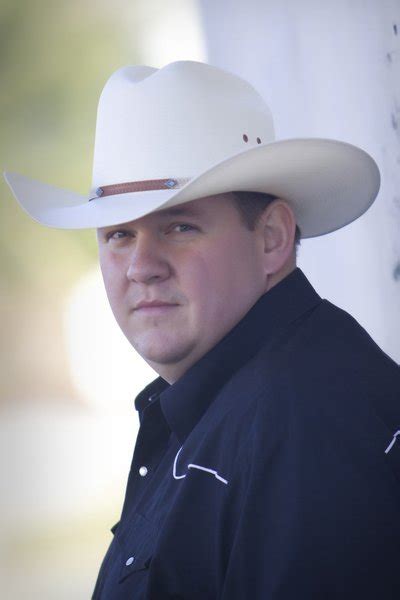A Quote by Peter Senge
Businesses and other human endeavors are also systems. They, too, are bound by invisible fabrics of interrelated actions, which often take years to fully play out their effects on each other. Since we are part of that lacework ourselves, it's doubly hard to see the whole pattern of change. Instead we tend to focus on snapshots of isolated parts of the system, and wonder why our deepest problems never seem to get resolved.
Quote Topics
Actions
Also
Bound
Businesses
Change
Deepest
Each
Effects
Endeavors
Fabrics
Focus
Fully
Get
Hard
Human
Instead
Interrelated
Invisible
Isolated
Never
Often
Other
Our
Ourselves
Out
Part
Parts
Pattern
Play
Problems
Resolved
See
Seem
Since
Snapshots
System
Systems
Take
Tend
Too
Which
Whole
Why
Wonder
Years
Related Quotes
Capitalism is a powerful producer of output, crisis-mongering on the left notwithstanding, and this too makes the system seem to have a lot of promise. This is why it is so important to agitate against the system in good times and bad. We can't depend on some super crisis to get folks thinking but instead have to focus on all of the contradictions of the system which cannot be ultimately resolved by it.
Conflicts, even of long standing duration, can be resolved if we can just keep the flow of communication going in which people come out of their heads and stop criticizing and analyzing each other, and instead get in touch with their needs, and hear the needs of others, and realize the interdependence that we all have in relation to each other. We can't win at somebody else's expense. We can only fully be satisfied when the other person's needs are fulfilled as well as our own.
Introverts tend to internalize problems. In other words, we place the source of problems within and blame ourselves. Though introverts may also externalize and see others as the problem, it's more convenient to keep the problem "in house." Internalizers tend to be reliable and responsible, but we can also be very hard on ourselves.
Just as the system of the sun, planets and comets is put in motion by the forces of gravity, and its parts persist in their motions, so the smaller systems of bodies also seem to be set in motion by other forces and their particles to be variously moved in relation to each other and, especially, by the electric force.
I feel that I'm in on the ground floor of something that human beings will be concentrating on for the next 1,000 years-if we don't destroy ourselves in the meantime. It's possible that 50 years from now we're going to end up out of this solar system, batting around the universe, at least within our galaxy, investigating other stars and other systems.
And now, what does it all matter? It matters more than anything else in the world. The whole dance, or drama, or pattern of this three-Personal life is to be played out in each one of us: or (putting it the other way round) each one of us has got to enter that pattern, take his place in that dance. There is no other way to the happiness for which we were made.
Just as love blinds us to imperfections in others, it magnifies those we see in ourselves. But if this is true, then the opposite must also be the case. We can take comfort in the fact that our faults will be invisible to those who love us. The success or failure of any relationship depends not just on how we feel about each other, but on how we make each other feel about ourselves.
People create the illusion of acting natural, which is what I think most documentarians do in part because of the direct cinema orthodoxies that came into play really in the '60s. That moment of performance is a tremendous opportunity to make visible something hitherto invisible, which is how people want to be seen. How do they see themselves? What are the scripts, fantasies, genres by which they imagine themselves? How is storytelling part of what we are as human beings? We wouldn't kill each other en masse if it weren't for storytelling. We wouldn't be able to live with ourselves.
My books are based on the "what if" principle. "What if you became invisible?" or "What if you did change into your mother for one day?" I then take it from there. Each book takes several months in the long process of writing, rewriting, writing, rewriting, and each has its own set of problems. The one thing I dislike about the writing process is the sometimes-loneliness of it all. Readers only get to see the glamour part of a bound book, not some of the agonizing moments one has while constructing it.
We have compassion because of the incredible pain and suffering which we as unenlightened beings cause to ourselves and all others through our ignorance. This is why we're trying to get out. This is why the bodhisattva has meaning. Because we're saying, no we won't get out, we won't escape until we've helped all other beings to escape, but most other beings don't even want to escape. They don't even know that there is an escape, and it's hard, so it's going to take an awfully long time.
Thought reflexes get conditioned very strongly, and they are very hard to change. And the also interfere. A reflex may connect to the endorphins and produce an impulse to hold that whole pattern forther. In other words, it produces a defensive reflex. Not merely is it stuck because it's chemically so well built up, but also there is a defensive reflex which defends against evidence which might weaken it. Thus it all happens, one reflex after another after another. It's just a vast system of reflexes. And they form a 'structure' as they get more rigid.




































